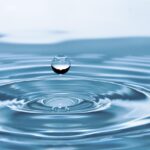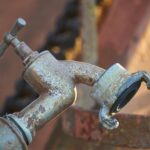Irrigation Water Solutions near Oregon: Southeastern Oregon is also impacted by the water cycle shortages.
Future Challenges and Predictions, etc
The Great Basin’s Water Future: A Balancing Act Between Challenges and Solutions
The Great Basin, a vast region encompassing parts of Nevada, Utah, Oregon, California, Idaho, and Wyoming, faces a critical challenge: a dwindling water supply. This arid landscape, naturally prone to dryness, is experiencing amplified water scarcity due to climate change, leading to increased drought, hotter temperatures, and altered precipitation patterns.
This situation presents a complex puzzle for the region’s communities and ecosystems. The future of the Great Basin hinges on finding innovative solutions to address this water shortage and ensure a sustainable future for its people, environment, and economy.
The Challenge: A Shrinking Water Supply
The Great Basin relies on a unique water cycle, where precipitation primarily falls as snow in the high mountains. This snowmelt feeds rivers and streams, providing crucial water resources for the region. However, climate change is disrupting this delicate balance, resulting in:
- Reduced Snowpack: Warmer temperatures lead to earlier snowmelt and reduced overall snowpack, decreasing the amount of water available for later in the year.
- Increased Evaporation: Higher temperatures accelerate evaporation rates, further reducing water availability.
- More Frequent and Intense Drought: Climate change exacerbates the natural dryness of the region, leading to prolonged periods of drought and increased strain on water resources.
Building a Sustainable Future: Solutions for a Water-Scarce Landscape
Addressing the Great Basin’s water challenge requires a multifaceted approach that focuses on conservation, innovation, and collaborative planning. Here are some key strategies:
- Water Conservation: Implementing water-saving measures in homes, businesses, and agriculture is essential. This includes adopting water-efficient appliances, implementing drought-tolerant landscaping, and implementing smart irrigation systems.
- Water Reuse and Reclamation: Treating and reusing wastewater for irrigation and industrial purposes can significantly increase water availability. This involves investing in advanced water treatment technologies and promoting the responsible use of reclaimed water.
- Groundwater Management: Managing groundwater resources sustainably is vital. This includes monitoring groundwater levels, implementing responsible pumping practices, and exploring options for artificial recharge.
- Innovative Water Technologies: Research and development of new technologies, such as desalination and atmospheric water harvesting, hold promise for augmenting water supplies in the region.
- Collaborative Planning and Governance: Effective water management requires collaboration between government agencies, water providers, communities, and stakeholders. Developing shared plans and strategies ensures the equitable and sustainable use of water resources.
A Call for Action: Working Together for a Water Secure Future
The future of the Great Basin depends on a collective effort to address the region’s water challenges. By embracing innovation, prioritizing conservation, and fostering collaboration, we can secure a future where water resources are sustainably managed and the region thrives despite the challenges of climate change.
💧 The Great Basin’s Water Puzzle: A Journey of Water and Challenges
TL;DR: The Great Basin is a vast, dry region with a unique water cycle. Climate change is making the water situation even tougher, leading to shortages. We need to conserve water, use it wisely, and find new ways to get more water to meet the needs of people and nature.
The Journey of Water in the Great Basin
Imagine a giant bathtub with a small, leaky faucet. That’s kind of what the Great Basin is like. It’s a huge area in the western United States that doesn’t drain into an ocean. Water falls as rain and snow, but much of it evaporates back into the air or seeps into the ground. What little water does flow often ends up in lakes or rivers that have no outlet to the sea.
Think of Southeastern Oregon as part of this big bathtub. It’s also affected by the challenges of the Great Basin water cycle.
The Challenge of Water Shortages
The Great Basin is a naturally dry place, but the problem is getting worse due to climate change. Warmer temperatures mean more evaporation, leading to less water available for people, farms, and wildlife. This can lead to:
- Drought: Long periods of dry weather, which can be extremely damaging to crops and animals.
- Water Conflicts: When there’s not enough water to go around, people and communities can have disagreements about who gets to use what.
- Shrinking Lakes and Rivers: As water levels drop, lakes and rivers get smaller, impacting the plants and animals that depend on them.
Solutions: Putting the Pieces of the Puzzle Together
To solve the water puzzle, we need to work together and be creative:
- Water Conservation: This means using less water in our homes, schools, and businesses. Think about taking shorter showers, fixing leaky faucets, and watering our gardens wisely.
- Innovative Irrigation: Farmers can use new technologies, like drip irrigation, to get water directly to plant roots instead of wasting it by spraying it over entire fields.
- Policy Measures: Governments can help by creating laws that encourage water conservation and support research into new water management solutions.
The Active Climate Rescue Initiative: Making a Difference
A group called Active Climate Rescue is working to find solutions to the Great Basin’s water supply shortages. They are researching and promoting ways to make the region more resilient to climate change, while also protecting its natural resources.
The Great Basin’s Water Future
The Great Basin faces a difficult challenge, but with innovative solutions, careful planning, and the willingness to adapt, we can ensure a healthy and sustainable future for the region and its people. This means conserving water, using it wisely, and protecting the environment. By working together, we can find solutions to the water puzzle and create a better future for the Great Basin.
More on Irrigation Water Solutions…
- ## Irrigation Water Solutions Keywords:
- irrigation water solutions
- water conservation in irrigation
- efficient irrigation systems
- sustainable irrigation practices
- smart irrigation technology
- water management for irrigation
- water saving irrigation solutions
- irrigation water optimization
- drought-resistant irrigation
- precision irrigation systems
- water-efficient irrigation techniques
- irrigation water quality
- irrigation water supply
- irrigation water scheduling
- irrigation water monitoring
- irrigation water auditing
- water reuse in irrigation
- greywater irrigation systems
- drip irrigation systems
- sprinkler irrigation systems
- micro-irrigation systems
- subsurface irrigation
- water harvesting for irrigation
- rainwater harvesting for irrigation
- irrigation water cost reduction
- irrigation water efficiency analysis
- irrigation water audits and assessments
- ## Future Challenges and Predictions Keywords:
- future of irrigation
- water scarcity in irrigation
- climate change impact on irrigation
- water stress in agriculture
- irrigation challenges in the future
- predictions for irrigation technology
- water resource management in irrigation
- sustainable irrigation in a changing climate
- irrigation innovation trends
- water conservation strategies for irrigation
- smart irrigation for the future
- precision agriculture and irrigation
- water-efficient irrigation technologies
- water scarcity solutions in irrigation
- digital irrigation systems
- irrigation automation and robotics
- artificial intelligence in irrigation
- irrigation and climate resilience
- irrigation and food security
- water management for future generations
- irrigation and water policy
- water pricing and irrigation
- irrigation technology advancements
- future of irrigation research
- irrigation and sustainability
- water stewardship in irrigation
- irrigation and water equity
- irrigation and circular economy




